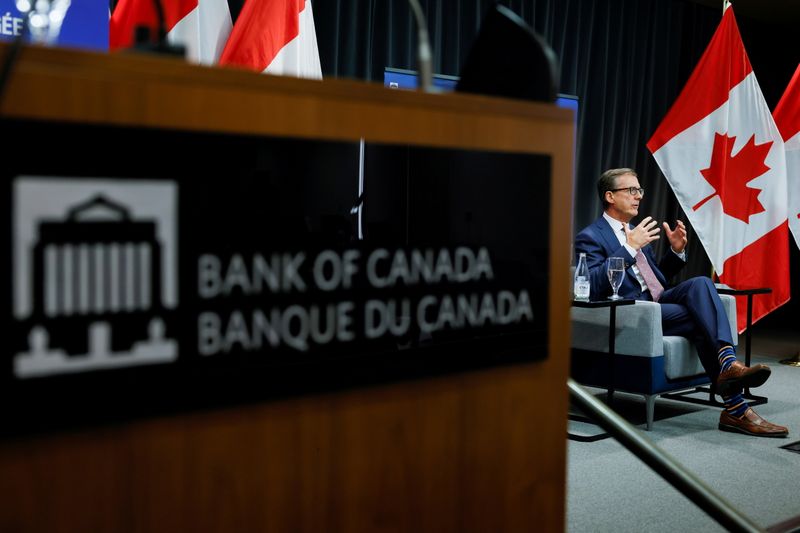By Ketki Saxena
Investing.com -- This week in Canadian economics proved to be turbulent, and served to exacerbate worries about the Canadian economy as inflation data came in surprisingly hot and reinforcing bets of further rate hikes from the Bank of Canada at a time that Canadians are already reeling from high inflation, rising mortgage costs, and record household debt.
Rising Inflation Stokes Fears of Further Bank of Canada Rate Hike
Canada’s annual inflation rate in August came in hotter than expected. Headline inflation jumped to 4.0%, compared to analyst expectations for a 3.8% reading, and compared to a 3.3% reading in July. Two of the three core inflation metrics, the Canadian central bank's preferred measure of inflation, also rose.
CPI wasn't the only inflation reading that came in hot - Statistics Canada reports that the Industrial Product Price Index rose 1.3% month over month in August and was down 0.5% year over year. The Raw Materials Price Index meanwhile increased 3.0% on a monthly basis in August but was down 4.3% year-over-year.
Bank of Canada Warns Not to Expect Rate Cuts soon
In addition to the rebounding inflation readings, BoC fears were further fanned by the release of the Canadian central Bank's minutes, which sought to dampen market expectations that rate cuts were on the horizon.
The Bank of Canada warned that it's decision to keep rates on hold on September 6 should not "be misinterpreted as a sign that policy tightening had ended and that lower interest rates would follow."
Slowdown in Canadian Economy: Signs Continue to Mount
Meanwhile, the signs of a slowing economy continued to mount - Canadian housing starts fell 1% in August on a monthly basis. The seasonally adjusted annualized rate of housing starts fell to 252,787 units from a revised 255,232 units in July.
In a sign of decreased consumer spending as interest rates make their impact felt, preliminary data from Statistics Canada showed a 0.3% decrease in retail sales for August, marking the first drop since March, and after a 0.3% rise in July. In volume terms, retail sales edged down 0.2% in July.
Autoworker Strike Averted; Alberta Mulls CPP Exit
In other news, a strike by autoworkers was averted after Ford reached an eleventh-hour decision with Unifor, the union representing Canadian autoworkers, to avoid a walkout at its Canadian operations.
Lastly, this week represented a watershed moment in the future of the national pension plan, as Alberta decides whether it will stay within the Canada Pension Plan. Alberta began a provincewide consultation on whether it should quit the in 2027. A third party reported yesterday estimated that Alberta should get $334 billion, or 53% of the program should it leave.
